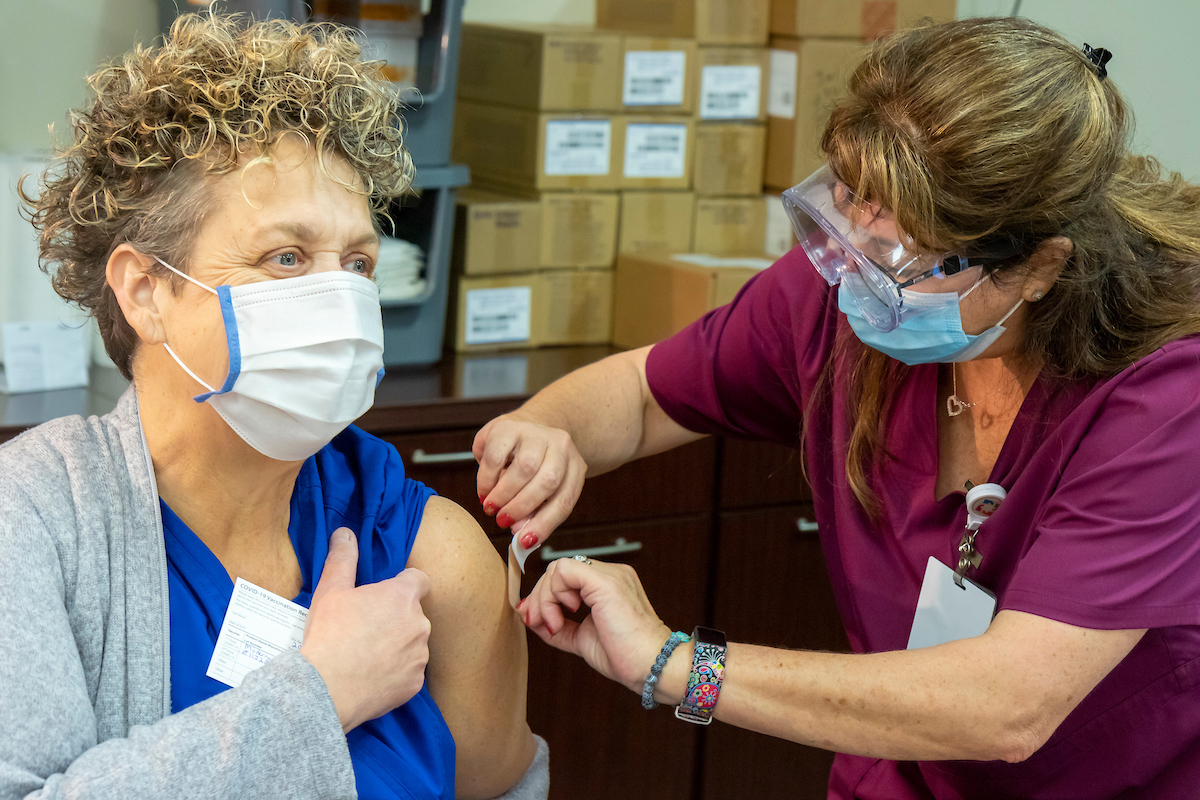<< Back
What’s Your Risk of Getting COVID-19 vs. a Severe Allergic Reaction to a Vaccine?

January 07, 2021
Are you more likely to get COVID-19 or experience a severe allergic reaction to a COVID-19 vaccine?
It’s not even close, according to new vaccine data from the Centers for Disease Control and Prevention, which found 21 severe allergic reactions among the first 1.9 million people who received a shot in the first two weeks of vaccine availability. That’s 11.1 cases per 1 million. In the United States (and Connecticut), meanwhile, about 650 COVID cases were reported recently per 1 million people.
The CDC, which released the study Jan 6, said the allergic reactions do not change its guidance regarding who should can be vaccinated. Most of the people who experienced allergic reactions, the study found, had a history of allergic reactions. Twenty have recovered fully.
“Patients who received the vaccine understand what to look for and that we’ll report any side effects so that they can be evaluated by the [Food and Drug Administration] and other bodies,” said Eric Arlia, Hartford HealthCare’s System Director of Pharmacy.
Any vaccine can cause a potentially life-threatening allergic reaction known as anaphylaxis: The risk is 1.3 per 1 million for the flu vaccine. Anaphylaxis is reversible quickly with certain medicines, notably epinephrine — the drug used to treat most of the 21 vaccine recipients who had a severe allergic reaction. The CDC, however, recommends anyone with a severe allergic reaction to the first vaccine dose should not get the second.
“The known and potential benefits outweigh the known and potential risk of getting the vaccine,” said Nancy Messonnier, director of the CDC’s National Center for Immunization and Respiratory Diseases. “We’re in the setting of 2,000 COVID deaths per day. . . . I would say it’s still a good value proposition for someone to get vaccinated.”